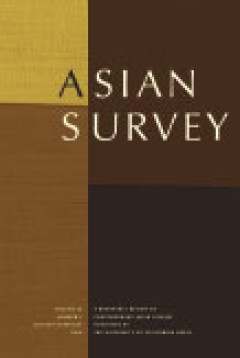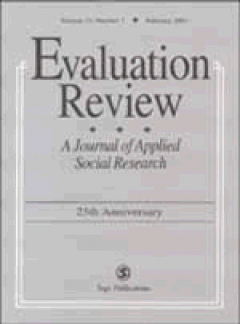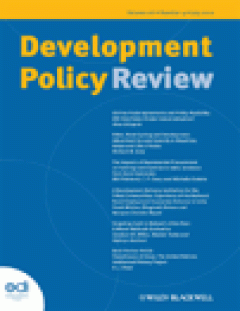Filter by

South Korean Strategic Thinking toward North Korea: The Evolution of the Enga…
Despite agreements in 2007 in the Six-Party Talks, the U.S. and South Korea have had trouble reaching consensus in dealing with subsequent nuclear crises spawned by North Korea. This study focuses on South Korean strategic thinking about and policy toward North Korea and Korean unification, and their changes since the 1990s.
- Edition
- Vol. 50, No. 2, March/April 2010, Pages 335–355
- ISBN/ISSN
- 00044687
- Collation
- -
- Series Title
- Asian Survey
- Call Number
- -

Private Equity and Asian Political Economy: "Domestic" Private Equity Funds a…
Private equity funds, particularly those headquartered in the U.S., have come under heavy attack internationally from civil society and regulators. At the same time, locally owned private equity funds have unexpectedly appeared in significant numbers across emerging markets. The analysis in this paper illustrates how actors that are only notionally domestic are introducing the neoliberal privat…
- Edition
- Vol. 50, No. 2, March/April 2010, Pages 356–377
- ISBN/ISSN
- 00044687
- Collation
- -
- Series Title
- Asian Survey
- Call Number
- -

Climate Change and Regime Perpetuation in North Korea
Climate change is a new variable that may weaken the Kim Jong-il regime by disrupting North Korea's agricultural sector, leading to greater food insecurity and erosion of the state's institutions. North Korea has limited capacity to adapt to climate hazards, which could exacerbate existing stresses and push the regime into terminal decay.
- Edition
- Vol. 50, No. 2, March/April 2010, Pages 378–401
- ISBN/ISSN
- 00044687
- Collation
- -
- Series Title
- Asian Survey
- Call Number
- -

India's Developing Relationship with South Korea: A Useful Friend in East Asia
The long-standing strategic disconnect between South Asia and the Korean Peninsula is breaking down. Driven by the changing balance of power in Asia, India and South Korea have developed a strong economic partnership, and taken small but significant steps toward a political and security relationship that refects their numerous shared strategic interests. This article explores the contours of th…
- Edition
- Vol. 50, No. 2, March/April 2010, Pages 402–425
- ISBN/ISSN
- 00044687
- Collation
- -
- Series Title
- Asian Survey
- Call Number
- -

Resources, Rent-Seeking, and Reform in Thailand and Myanmar (Burma): The Econ…
This article examines the economics-politics nexus in Thailand and Myanmar in the context of rent-seeking, revenues from oil and gas resources, and possible political reform.
- Edition
- Vol. 50, No. 2, March/April 2010, Pages 426–448
- ISBN/ISSN
- 00044687
- Collation
- -
- Series Title
- Asian Survey
- Call Number
- -

Metric Properties of the Neighborhood Inventory for Environmental Typology (N…
Objectives: Establish metric properties of the Neighborhood Inventory for Environmental Typology (NIfETy). Method: A total of 919 residential block faces were assessed by paired raters using the NIfETy. Reliability was evaluated via interrater and internal consistency reliability; validity by comparing NIfETy data with youth self-reported violence, alcohol, and other drug exposure and crime sta…
- Edition
- Vol. 34, No. 3, June 2010. pp.159-184
- ISBN/ISSN
- 0193841x
- Collation
- -
- Series Title
- Evaluation Review
- Call Number
- -

Exploring Methods to Investigate Sentencing Decisions
The determinants of sentencing are of much interest in criminal justice and legal research. Understanding the determinants of sentencing decisions is important for ensuring transparent, consistent, and justifiable sentencing practice that adheres to the goals of sentencing, such as the punishment, rehabilitation, deterrence, and incapacitation of the offender, as well as reparation for the vict…
- Edition
- Vol. 34, No. 3, June 2010. pp. 185-219
- ISBN/ISSN
- 0193841x
- Collation
- -
- Series Title
- Evaluation Review
- Call Number
- -

The Cost-Effectiveness of NBPTS Teacher Certification
A cost-effectiveness analysis of the National Board for Professional Teaching Standards (NBPTS) program suggests that Board certification is less cost-effective than a range of alternative approaches for raising student achievement, including comprehensive school reform, class size reduction, a 10% increase in per pupil expenditure, the use of value-added statistical methods to identify effecti…
- Edition
- Vol. 34, No. 3, June 2010. pp. 220-241
- ISBN/ISSN
- 0193841x
- Collation
- -
- Series Title
- Evaluation Review
- Call Number
- -

Measuring Law for Evaluation Research
Evaluations that combine social science and law have tremendous potential to illuminate the effects of governmental policies and yield insights into how effectively policy makers� efforts achieve their aims. This potential is infrequently achieved, however, because such interdisciplinary research contains often overlooked substantive and methodological challenges. This article offers detailed g…
- Edition
- Vol. 34, No. 3, June 2010. pp. 242-266
- ISBN/ISSN
- 0193841x
- Collation
- -
- Series Title
- Evaluation Review
- Call Number
- -

Principles for a Cultural Psychology of Creativity
This article focuses on a novel theoretical paradigm emerging in the study of human creativity: the cultural-psychological approach. It starts by differentiating between the long past of individualistic accounts of creativity (the lonely genius) and the short history of psychological understandings (the creative individual). The social and the cross-cultural psychology of creativity are both co…
- Edition
- Vol. 16, No. 2, June 2010. pp. 147-163
- ISBN/ISSN
- 1354067x
- Collation
- -
- Series Title
- Culture & Psychology
- Call Number
- -

Commentary: How can Creativity in a Social Context be Possible?
Glaveanu�s (2010) �We-paradigm� creativity is related to culture and social context, especially due to his emphasis on the role of the community as a provider of criteria for evaluating creativity. In addition, he suggests five principles for studying this kind of creativity. In this article, I will apply these principles to study the Korean cultural phenomenon, Shinmyeong. The characteristics …
- Edition
- Vol. 16, No. 2, June 2010. pp. 165-173
- ISBN/ISSN
- 1354067x
- Collation
- -
- Series Title
- Culture & Psychology
- Call Number
- -

The Interface Work of Narrative
The article explores further Lyra (1999) and Hermans� (1999, 2001a, 2001b) glossing of complexity terminology within analysis of identity formation, taking a particular interest in differing uses of narrative within identity negotiations. Lyra (1999) draws attention to the importance of using an extended time frame to assess the power dynamics involved within any communicative exchange. The fra…
- Edition
- Vol. 16, No. 2, June 2010. pp. 175-194
- ISBN/ISSN
- 1354067x
- Collation
- -
- Series Title
- Culture & Psychology
- Call Number
- -

Commentary: Self-Narrative Reconstruction in Psychotherapy: Looking at Differ…
This commentary focuses on Cross�s (2010, this issue) work as an opportunity to elaborate upon how to study narrative-dialogical processes from the perspective of complexity. We start by elaborating on the notion that narrative development is a multidimensional activity that extends through several organizational levels and on the limitations of conventional research methods for narrative analy…
- Edition
- Vol. 16, No. 2, June 2010. pp. 195-212
- ISBN/ISSN
- 1354067x
- Collation
- -
- Series Title
- Culture & Psychology
- Call Number
- -

Culture as the Co-evolution of Psychic and Social Systems: New Perspectives o…
In this article we contribute a new theoretical perspective to the analysis of the relationship between individual and culture, and the person and the environment. Many hotly debated issues in cultural psychology, such as reification, the discourse of personality traits, and models of part�whole hierarchies are productively addressed. Taking a systems-theoretical approach following Niklas Luhma…
- Edition
- Vol. 16, No. 2, June 2010. pp. 213-241
- ISBN/ISSN
- 1354067x
- Collation
- -
- Series Title
- Culture & Psychology
- Call Number
- -

Commentary: Environment, Behaviour and Communication: The Definitive Answer o…
The attempt to create general theory in social sciences is not new. Reductionism is one of the main problems in this process. Here I analyze the relationship between human, environment, and culture, based on Luhmann�s systems theory and its implications for modern psychology as discussed in Thommen and Wettstein�s (2010) critique of the field. Distinguishing three types of system (biotic, psych…
- Edition
- Vol. 16, No. 2, June 2010. pp. 243-251
- ISBN/ISSN
- 1354067x
- Collation
- -
- Series Title
- Culture & Psychology
- Call Number
- -

Guilt in a Fluid Culture? A View from Positioning Theory
What is the status of guilt as an emotion in postmodern society? According to Zygmunt Bauman, postmodern consumer society supplies a cultural context in which guilt loses in importance. By definition, guilt is connected to a breach in shared rules, but rules and norms have allegedly become fluid today, thereby rendering clear breaches and ensuing guilt rare events. In this article, I provide an…
- Edition
- Vol. 16, No. 2, June 2010. pp. 253-266
- ISBN/ISSN
- 1354067x
- Collation
- -
- Series Title
- Culture & Psychology
- Call Number
- -

Sympathy, Compassion, and Empathy in English and Russian: A Linguistic and Cu…
In this corpus-based study I contribute to the description and analysis of linguistic and cultural variation in the conceptualization of sympathy , compassion, and empathy. On the basis of a contrastive semantic analysis of sympathy, compassion, and empathy in English and their Russian translational equivalents, socuvstvie , sostradanie, and soperezivanie, I demonstrate significant differences …
- Edition
- Vol. 16, No. 2, June 2010. pp. 267-285
- ISBN/ISSN
- 1354067x
- Collation
- -
- Series Title
- Culture & Psychology
- Call Number
- -

Commentary: Framing Sympathy
The expression of emotion takes many forms and their linguistic expression is one of the key ways they are articulated. The study of the semantic fields in which the expression of emotion takes place is in need of an appropriate methodology and a sufficiently broad set of examples. Anna Gladkova�s attempt to use the methodology of Natural Semantic Metalanguage to explore the semantics of certai…
- Edition
- Vol. 16, No. 2, June 2010. pp. 287-296
- ISBN/ISSN
- 1354067x
- Collation
- -
- Series Title
- Culture & Psychology
- Call Number
- -

US Free Trade Agreements and Policy Flexibility: Will New Rules Hinder Indust…
Free trade agreements have become a central feature of many developing countries' growth strategies, encouraged by an evaluation literature that quantifies their positive impact on trade. However, trade gains come at the cost of policy space, particularly when the partner is a developed country, and though this cost has been acknowledged, its impact has not been explored. This article seeks to …
- Edition
- Volume 28 Issue 4, July 2010. Pages 387 - 410
- ISBN/ISSN
- 09502386
- Collation
- -
- Series Title
- Development Policy Review
- Call Number
- -

Elites, Rent-Cycling and Development: Adjustment to Land Scarcity in Mauritiu…
According to rent-cycling theory, low rent aligns the interests of the elite and the majority in providing public goods and efficiency incentives to promote economic growth, while high rent risks deflecting the elite into self-enriching rent deployment, which distorts the economy and triggers a collapse from which recovery is protracted because rent recipients resist reform. The theory also pre…
- Edition
- Volume 28 Issue 4, July 2010. Pages 411 - 433
- ISBN/ISSN
- 09502386
- Collation
- -
- Series Title
- Development Policy Review
- Call Number
- -
 Computer Science, Information & General Works
Computer Science, Information & General Works  Philosophy & Psychology
Philosophy & Psychology  Religion
Religion  Social Sciences
Social Sciences  Language
Language  Pure Science
Pure Science  Applied Sciences
Applied Sciences  Art & Recreation
Art & Recreation  Literature
Literature  History & Geography
History & Geography